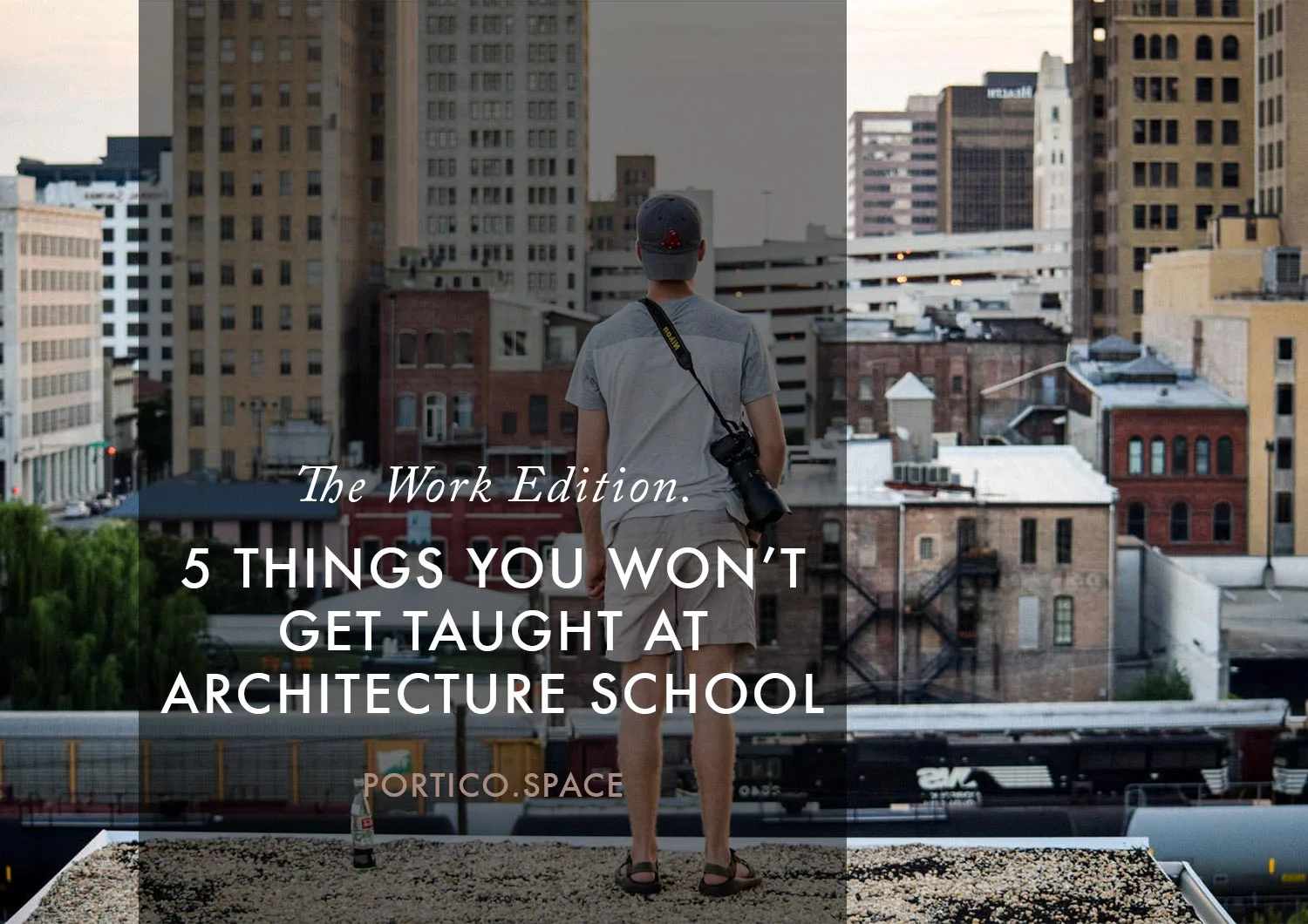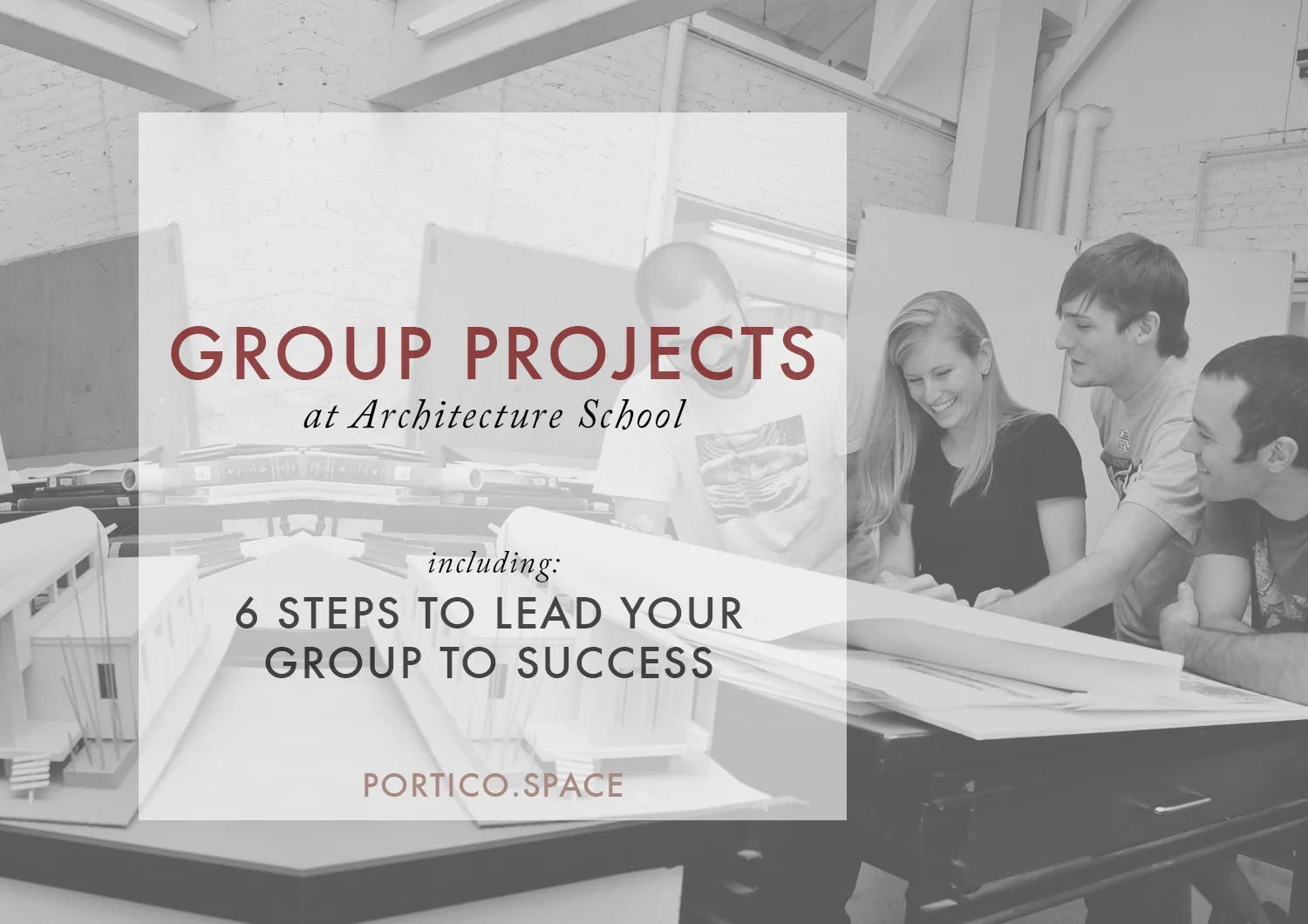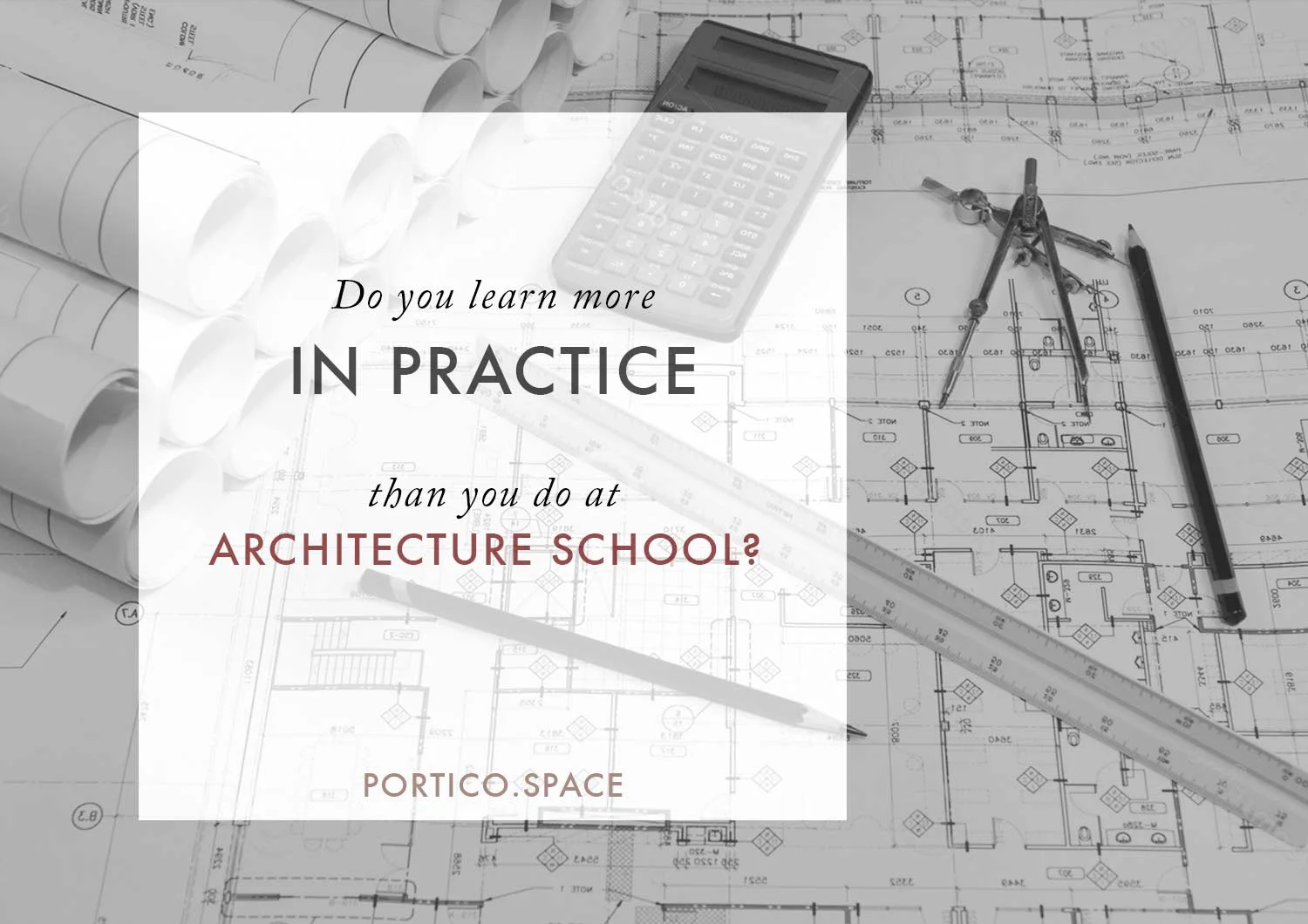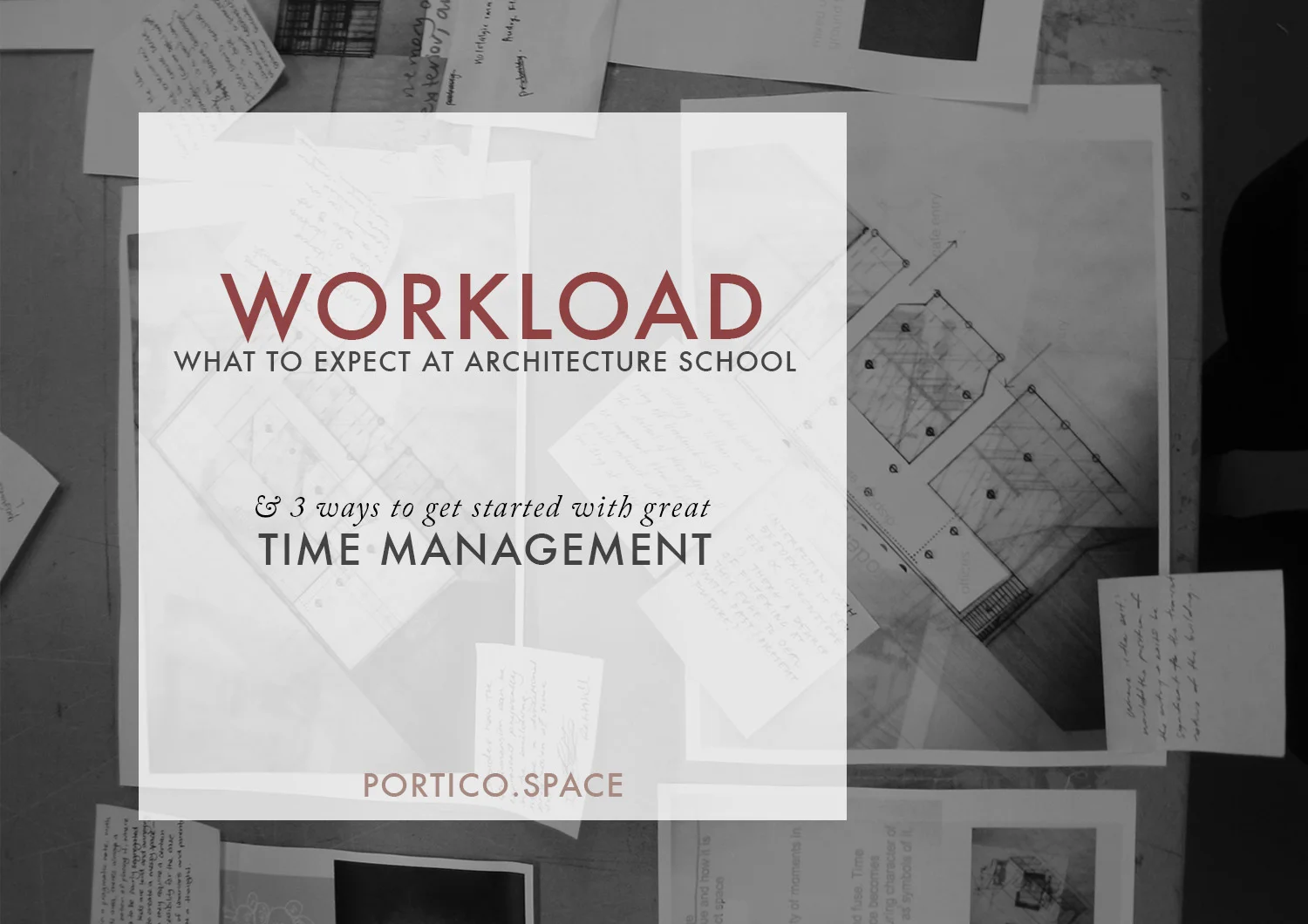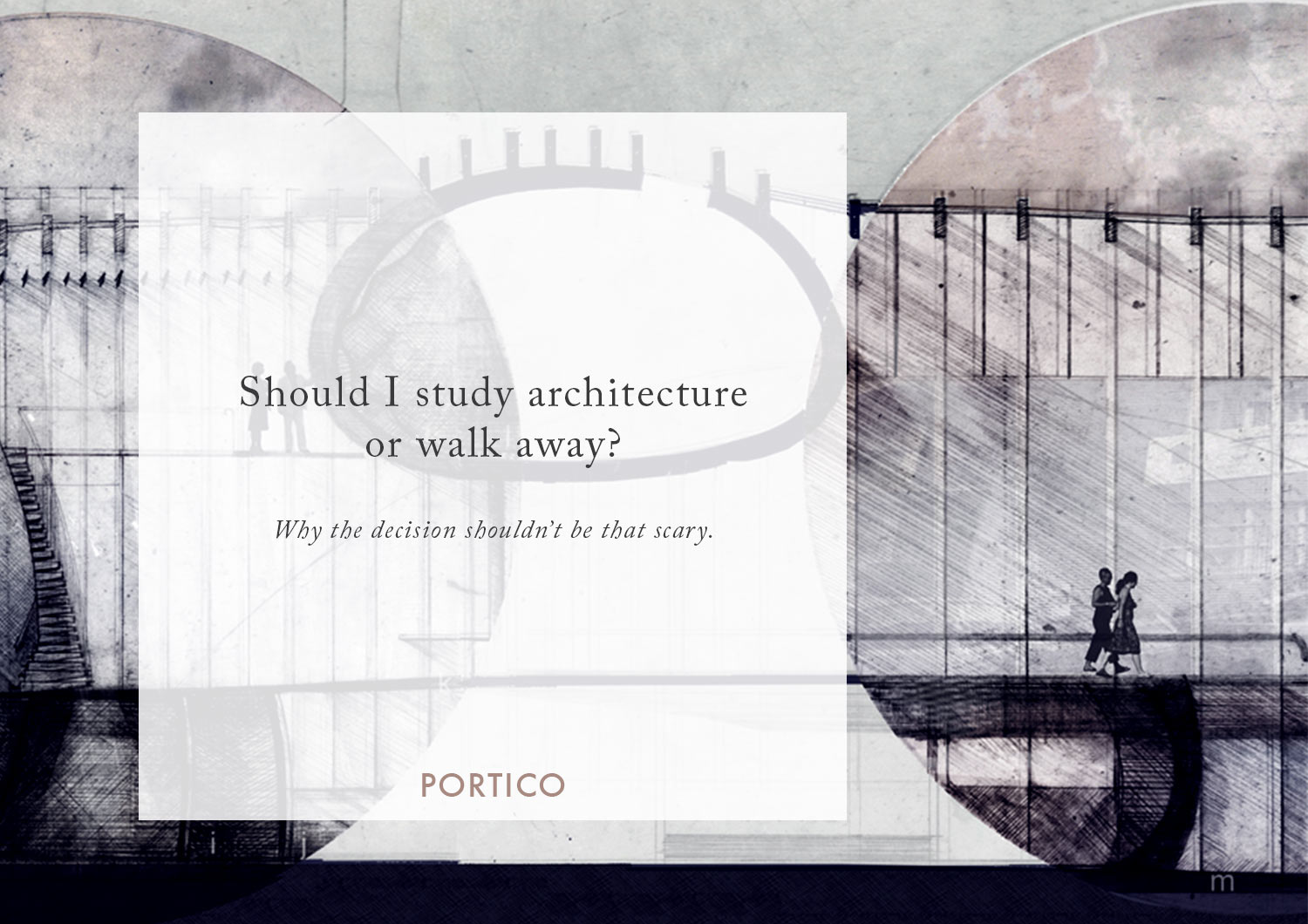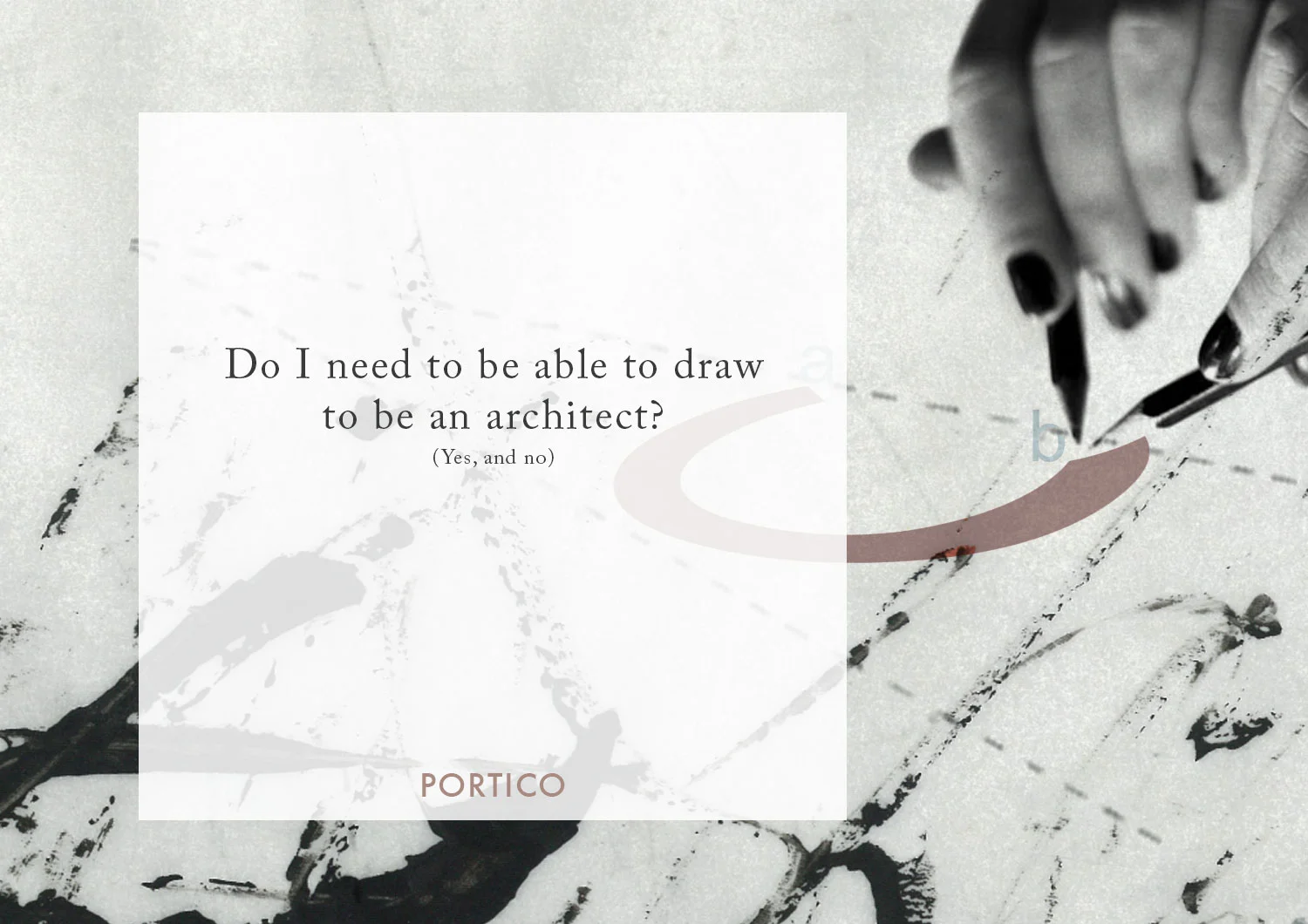Mental Health & Wellbeing for Architecture Students
“Remember: You’re not superhuman - and you’re not expected to be superhuman!”
Mental health issues and the plight of stressed-out architecture students have been at the forefront of my mind these last few months, after a survey published in the UK magazine 'The Architect's Journal' (AJ) suggested that about a quarter of architecture students are suffering from mental health issues.
It's not hard to see that that's a pretty large proportion. It's hard not to be concerned. And, it's underlined by an even more significant proportion of students who have either sought help for mental issues in the past, or think they will be likely to in the future.
But to me, putting these statistics on the table is only the first step. The real question is what do they mean? What are they a reflection of? How can we begin to change things? And, whether you're at, or perhaps thinking about going to architecture school, how can you support and look after yourself, so you can live your dreams to your full potential?
What's the problem, anyway?
Part of the difficulty of looking at the statistics and symptoms to define the problem is that it's easy to externalise, to depersonalise, and to brush it off as someone else's problem.
In reality, these statistics and symptoms are only what has managed to bubble to the surface, or what has been deemed significant enough to report.
In reality, the problem goes much deeper, is very complex, and in some ways affects us all. It is personal, but it's also cultural, professional, and institutional.
It's our problem.
In my opinion, we can think about all the two aspects of architecture that contribute to the overwhelming incident of mental health issues in two categories:
The first is the organisation of architecture. This is really about how architecture works, and the quantifiable elements that we've established over time to make Architecture a viable profession and figure out how to establish an educational system. This includes the systems, deadlines, timeframes, markets and costs associated with the profession.
The second is the culture of architecture. This category accounts for the less quantifiable aspects of architecture, which interplay with timeframes, systems and costs, but are often broader than these and more difficult to define. This category is wide ranging, but I think some of the common areas it includes are the difficulties of creative design work, supporting the image of the suffering artist, and the level of intense, high-level competition we often find in architecture schools.
So let's delve into these two areas a little bit further:
The Organisation of Architecture
Workload & Deadlines
There's lots of work to be done, which, funnily enough, means students are often very busy doing work. That's not necessarily bad - but sometimes, you can be so busy that other important aspects of life - including down time, exercise, time with family & friends, passion projects, or even eating well and getting proper sleep - get left out.
Architecture is largely graded based on 'projects' rather than exams, which means multiple deadlines throughout the semester, often carrying significant weigh - if not making up your final grade entirely. (The flip side of this is: less exams!)
Sometimes these deadlines are unfortunately organised, so you might have 2 or 3 in one week, which can lead to some pretty stressful situations for those of us who are still working on our time management skills! (Although I know universities try hard to avoid this!)Length of course
It takes a long time to study towards an architecture degree - with students often studying for a minimum of 5 years. This requires a huge commitment - time away from family, time out of productive work, and time in what can be an exciting and creative, but also confusing and stressful situation.
It can also make it difficult to reconnect with all of these things and forge a new path once architecture school is complete.Breadth of the course
One of the things I love about architecture is the breadth - the number of different areas it crosses. However, this also means that the course will include something you might struggle with, but need to pass to get your degree. This can be a source of stress and self-doubt.
Cost of study
Studying Architecture is usually not cheap - not least because of the length of the course as mentioned above. But on top of course fees, architecture students often carry significant costs for model-making and drawing materials, study trips and computer software.
On top of these costs, if the workload means you aren't able to work to generate some income, your bank balance can get scary, and money worries can be ever-present.
Uncertain job market
As part of the construction industry, architecture is pretty vulnerable to economic cycles - which means big highs, and sometimes deep lows. This cyclical nature can lead to uncertainty in the job market - particularly in times of wider economic stress. This can make getting your foot in the door - a stressful time in any case - particularly difficult.
Add to this the fact that most architecture students leave architecture school with significant debt, and the individual stress is understandable.
The culture of Architecture
It's design!
Design is creative work - there's no one 'right' answer, it can always be changed, enhanced, or 'bettered'. It's difficult to know when to stop, and this is a very tricky, trusting, step which you'll build intuition around over time. Overworking a project can be as bad for it as underworking it.
Creative work can also be very personal. There's a sense that your heart and soul go into creating it, so absorbing criticism, or running out of time to complete to your personal vision can be heartbreaking.Working hours
Unfortunately, there is often a culture of working long, and sometimes excessive hours in architecture - and not just in school!
This can mean working 6, 7 days a week, from morning until very late, and in some cases, late nights turn into not sleeping at all - known as the infamous 'all-nighter.'Culture of suffering
We all know the image of the suffering artist - tortured by the difficulty of his work, poor, struggling, and often borderline crazy. Unfortunately some architecture students and Architects seem to take pride in being viewed in this light.
In studio, it can become a strange battle to out-suffer one another. The student who seems to be suffering the most, working the hardest, and sleeping the least, becomes the most esteemed. Yes, it sounds ridiculous when you write it down - but it happens, often!
Of course, this can lead to inefficient work - where you keep working on something even when you're not doing your best work, just because everyone else is working! Strange as it might seem, I have often seen overworked projects at hand-in time.Competition
Competition can be healthy - it inspires great work, allows us to learn from others, and pushes us to do our best. But constant competition - and constantly being surrounded by those you are in competition with - can take a toll.
Architecture school is a situation lots of high achievers in one place, and it can be easy to forget that architecture is about lifelong learning, not a single project grade.
Spending your energy on being competitive - essentially being overly concerned with what others are doing - means you'll have less energy to put into your own project. Building trust, sharing honest and valuable critique, and learning from one another's points of view will benefit you much more in the long run.
Method of presentation
It would be absolutely remiss of me not to mention the way design projects are commonly presented, and often graded, in Architecture School: 'The Crit', 'Pin-Up' or 'Jury'. Essentially students present their work - large scale drawings, models, or digital presentations - to a a panel of critics and their peers. The requirement to not just complete a project and hand it in, but to stand up, present it, and then respond to questions and comments about it, places significant pressure on individuals. And unfortunately, it can sometimes feel all too personal.
Do any of these points - organisational or cultural - ring true for you?
have you experienced stress to do with costs of study, finding a job, presenting your work,
or just feeling like you should be working on your project all the time?
You're not alone.
A note on stress (it's not all bad)
In the newfound era of mindfulness and meditation, we often talk about 'stress' in a negative sense - it's the big bad wolf in the room waiting to come and blow your carefully constructed house down.
But, stress isn't necessarily a bad thing! Things that cause us stress are, simply, challenges, situations or demands that we need to respond to in life.
By invigorating us to respond, stress can enable us to:
do our best well;
extend ourselves;
be motivated;
make big changes;
tackle scary decisions.
I actually enjoy the buzz of being put under pressure, in a ‘stressful’ situation. It fires me up, increases my productivity and shifts my creativity. I find I am more able to make decisions, and find a rhythm in my work. Looking back, I think this is a characteristic I have always had, but certainly honed during my time at Architecture School.
But, stress is supposed to be a short-term response to situations. When it starts to play a longer term, or continuous role in our lives, that's when it can get dangerous. The trick, then, is to understand your personal responses to stress, keep an eye on things, and learn to recognise this tipping point for yourself.
How you might feel
at architecture school
Historically, there's a lot of stigma attached to mental health, but attitudes are beginning to shift as more of the people we know, relate to and look up to in society share their stories. Mental health issues don't discriminate - the brightest, the calmest, the most out-going, even those who seem to have everything under-control can be affected.
But it's such a personal issue, that it can be tricky to recognise, and even more difficult to describe. You might feel constantly under pressure, or the sense of anxiety might build up over time. On the other hand, you might only be affected once or twice for very short but intense periods.
In the slightly crazy environment of the architecture studio in the build up to a big design presentation, it can be difficult to distinguish your own possible symptoms. And, even if you know you're not quite on top of your game, it can be easy to look around and see everyone else working hard (often masking their own symptoms and stresses), and feel like you just have to keep going to save face. It's not sustainable, or healthy - and it usually doesn't necessarily mean you're doing yourself justice with the work you're producing either.
So you know what to look out for,
here are some things it is common to feel:
About your relationship to work
Stressed
Pressured
Guilt
Anxiety
Overwhelmed
Inability to detach from your work
About your relationships with others
Isolated
Unsupported
Easily annoyed or irritated
Prone to taking everything personally
Keen to blame others
Trying to be the life of the party but not truly connecting with anyone
About yourself and your life
Inadequate or worthless
'Weird' or just not yourself
Not in control of your journey
Directionless
Like you can't do your best work
Remember: You're not superhuman - and you're not expected to be superhuman!
But also remember, it's personal.
How we relate and respond to architecture school is different for each of us. We all have unique and personal motivations, values, skills and vulnerabilities. Everyone's story looks different.
To illustrate this, I'd like to briefly share my story. Like most people, I usually like to hold it close to me, to share my strengths rather than my perceived weaknesses. But over time, I've realised that these 'weaknesses' are as important to who I am as the aspects I more readily celebrate.
My story...
My story doesn't look a lot like what you might expect the typical 'architecture school breakdown' to look like. But it's mine, it's linked to my relationship to architecture, and since going through this time, it's helped me be clearer about my values, skills, and what I need in life.
I love learning new things, being embedded in thinking and producing. I enjoy the buzz of hard work and adrenalin rush the accompanies deadlines. I know I'm a bit of a night owl, feeling like I do my best work from between about 4pm and 10pm, but I also know my brain stops functioning at about 12.30pm. I never really put pressure on myself to work past that time, and certainly didn't see much value in all-nighters!
But architecture school affects different people in different ways. And, even though I was pretty good at getting lots of things done in a specific timeframe, and managing various goals at once, doesn't mean I was fully prepared to cope with the affect the intensity of architecture school would have on my life.
In my architecture school experience, my 'mental health' episode didn't happen when I was approaching a critical deadline, but when it had passed. I suffer hugely from boredom, or when I find myself apathetic towards the activity I'm doing at that time. I need to see value in what I am doing, to be learning something new, to be pushing forward.
So how did this play out?
First, in my fourth year of university, I went off on exchange to a university in France, intending to spend a semester in the city I had spent a lifetime feeling connected to: Paris. But, after a few weeks of classes, being relegated to low-level papers due to language requirements, I started to feel agitated, lost, and out of control. It took me a little while - a lot of long walks through the city - to figure out that while my experience of living abroad alone had been amazing, what was really important to me was having a clear direction and feeling like I was learning and doing the best work I could be. So, to the intrigue of many people, I returned home to complete the rest of the semester. It was the hardest decision, but I learnt so much by making it, that I have no regrets about doing so (even if I still lust after lost time in Paris).
Then, when I finished my final year a little later on, I handed in my thesis and that was the end of my time at architecture school. I become so used to the treadmill of architecture school, pumping out project after project, that when I left, I was hit with a huge sense of emptiness, and questioned my direction and purpose in life. I finished during the economic downturn, and so to add to the situation I struggled to find work. I was pretty grumpy, listless, and uncertain at this time of my life. So how did I cope and get through this time? I did something completely different, and poured my energy into learning to cook - to really cook. Ottolenghi became my best friend. Oh, and eventually, I got a job, re-found my motivation and joy, and made my own path.
So what can WE do?
So far, the reported response to the statistics about architecture students are suffering from mental health issues has mainly been at an organisational and institutional level. Bob Sheil, the director of the Bartlett School of Architecture in London, responded by calling for 'new models' of architectural education and accreditation. As a profession and an international education community, we're been asking questions such as "How can we make architecture school more accessible, more economically viable, and less time-consuming for students? How can we rethink the way we teach to reduce unhealthy competition between students? And how can we make architecture school more relevant to real world applications?"
Certainly, institutional change can, and needs, to be led from the top. And these questions are all hugely important. My concern, though, is that responses like this do the very thing we've talked about that perpetuates the problem: depersonalising it, making it beyond us as individuals.
It's not that helpful to you - right now - to make it someone else's problem. It's not useful for current students to say that the University has to change and that will fix everything. It's deeper than that.
But cultural change - that's something we're all responsible for and can have a hand in catalysing.
So now that you are aware of these issues, from the day you step onto the campus, and everyday you set out on your architecture journey thereafter, you can be thoughtful and responsible for your actions and how they are perpetuating - or rebuilding this culture. You don't have to buy into it, you don't have to support it.
It's difficult to forge your own path, and to reroute the culture, but with more of us openly trying to do so, we've got a better chance than if we put our heads down and do nothing.
& What can YOU do?
As an individual, working through this problem starts with how you know and treat yourself everyday, and then, with how you treat others.
LiVe a rich life
Acknowledge that architecture is a way of life, but it isn't life!
Architecture School is part of a journey.
Try to live everyday.
Exercise. Use your body. Get the endorphins going.
Eat often, and eat well.
Sleep. Listen to your body, sleep as required.
Maintain relationships outside architecture school.
Get creative about generating an income.
Pay attention to yourself & to others
Know what drives you.
Set goals, but be flexible too.
Be true to your values, not those you think you should subscribe to.
Built honest relationships.
Know what energises you - and try to find space to do it everyday.
Be vulnerable, share your humanity.
Support others.
Share your story.
Manage the situation & triggers
Shift your focus by asking your tutors not to give you grades, only feedback.
Plan ahead (Read my post on time-management here!)
Learn to decipher what is required of you from unnecessary expectations.
Learn to fail, learn from failing, learn to move forward.
The first step is knowing yourself, being in touch with how you run, and paying attention to the indications your body and mind are giving you.
Be prepared to speak up, complain, or suggest alternatives.





